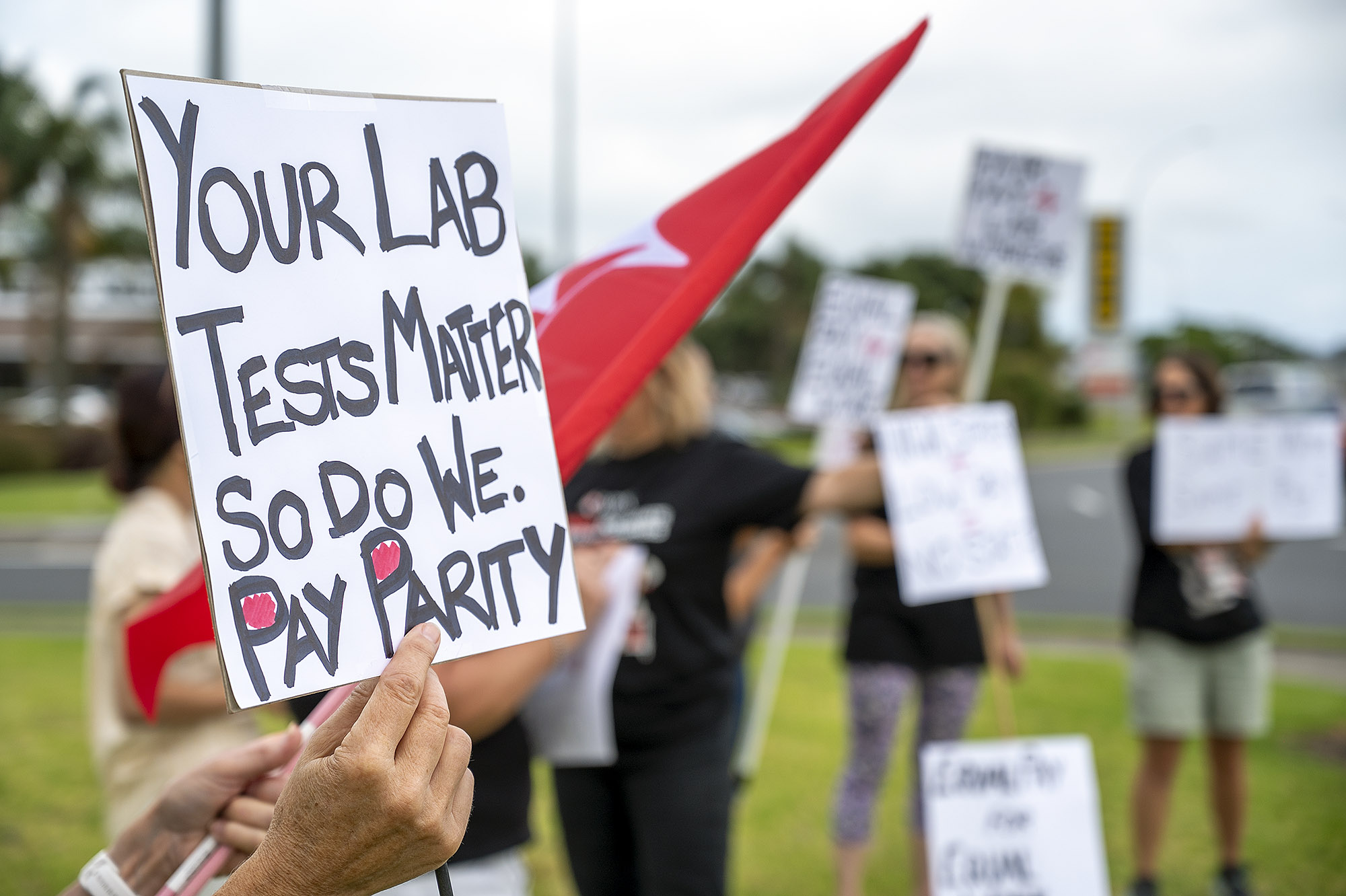Lab workers strike for pay parity

FAIR DEAL: Whakatāne laboratory workers went on strike yesterday for better pay. Photo Troy Baker E5234-09
News Editor
A group of laboratory workers in Whakatāne joined their colleagues in the first of two nationwide strikes yesterday.
The striking workers, who are employed by privately owned laboratory providers and are members of the Apex union, withdrew their labour for 24 hours yesterday in support of three separate collective bargaining negotiations. They are striking again tomorrow.
Delys Cram, a union representative in Whakatāne and a team leader for phlebotomists with 40 years of experience, joined the demonstration outside The Hub, alongside a group of PathLab employees based at Whakatāne Hospital. Ms Cram said around 24 laboratory workers took part in the strike.
The strike was about pay parity as there was a significant pay gap between workers in private laboratories and their counterparts in the public sector, she said.
“Private laboratories in New Zealand account for around 70 percent of laboratory work, while only 30 percent is done in public laboratories. Yet, private sector workers are paid 28 to 32 percent less than public laboratory staff for doing the same work. This makes it difficult to retain staff.”
Entry-level phlebotomists, for example, earn just above the minimum wage, a situation that the union is pushing to change. “We want a living wage for people starting out in this industry,” she said.
Laboratory scientist Natalie Sandifer, also on strike, explained the pay difference between the public and private sectors.
“When Health NZ implemented pay parity for nurses, a 30 percent pay rise, hospital laboratory workers received the same increase. However, private lab workers did not,” she said.
Ms Sandifer said to become a laboratory scientist, one must complete a four-year Bachelor of Medical Laboratory Science degree, followed by a six-month to one-year probationary period of on-the-job learning. As hospital-based workers, she said the laboratory operated around the clock, 365 days a year.